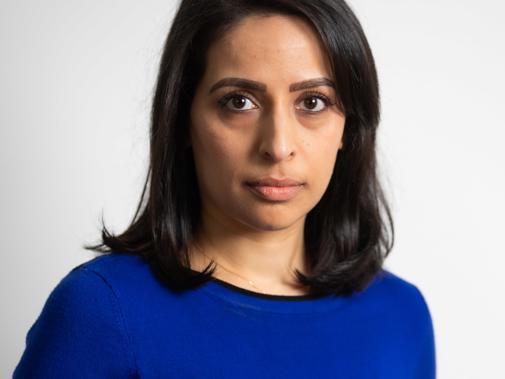Responding to trauma and alleviating suffering are fundamental aspects of our roles as medical students and doctors. Sometimes, however, trauma and suffering are of such magnitude it is impossible, even for medical professionals, to not be affected on a human level.
I know you will all be aware of the conflict in Gaza, the West Bank and Israel. Many will have seen the harrowing images of death and destruction. As of 23 November, more than 14,800 Palestinians (including 6,000 children) and 1,200 Israelis have been killed.
Following a fragile truce, and a temporary cessation to the violence to allow the arrival of crucial aid, the humanitarian tragedy in Gaza has continued.
Since the start of the conflict, the BMA has issued several statements including the call for a ceasefire, a position rooted in our long-standing commitment to principles enshrined in the association’s democratic policy – these are issues of fundamental importance to our members.
While conflicting accounts and accusations permeate the fog of war, we continue to ask leaders and combatants to respect international humanitarian law. These principles include our absolute opposition to the targeting of civilians or healthcare facilities in conflict areas.
Healthcare workers in the conflict areas are exhausted, working under unimaginable pressures, and many without necessities including adequate water, fuel and medication, limiting their ability to care as well as affecting their own physical and mental health.
The only side doctors take during conflict is that of their patients, and no healthcare professional should ever have to make a decision on who they provide treatment to or be the target of military action.
We stand in solidarity with doctors and healthcare workers in Gaza and anywhere else who are living and working under intolerable conditions.
With the approach of winter, Palestinian people, two thirds of whom are women and children, and more than 1.8 million of whom have been displaced by the conflict living without access to adequate water, food, fuel and shelter, will continue to need urgent humanitarian support, and our healthcare colleagues will continue to work under extreme pressures.
I know many of you will have been deeply and personally affected by the conflict, and I want to offer my sympathy and support to those of you with friends or family in Gaza, the West Bank or Israel.
We have heard concerns from individual members, groups and representative organisations. The conflict has also resulted in an appalling rise in racist and xenophobic abuse and attacks across the world, including the UK, with this victimisation coming in person, online and even within the health service.
Let me assure you, the BMA is absolutely resolute in our opposition to any form of bigotry, be it Islamophobia or antisemitism or any other form of discrimination, and to any of our members being targeted by such discrimination in their workplaces; your BMA is here for you – please do get in touch.
A statement offering support for UK doctors affected by the conflict can be found on the BMA website.
If any medical student or doctor is in need of wellbeing support our helpline is here for you 24/7 and can be reached on 0330 123 1245.
In turn, NHS England and employers must ensure doctors, medical students and other healthcare staff affected by this tragedy are able to discuss the crisis, and to talk about what they are going through within a psychologically safe environment in which their mental and emotional wellbeing are supported.
As ever, I welcome your thoughts and I thank the many members who have already been in touch.
Dr Latifa Patel is chair of the BMA representative body

